Stati Case: Victory for Kazakhstan?
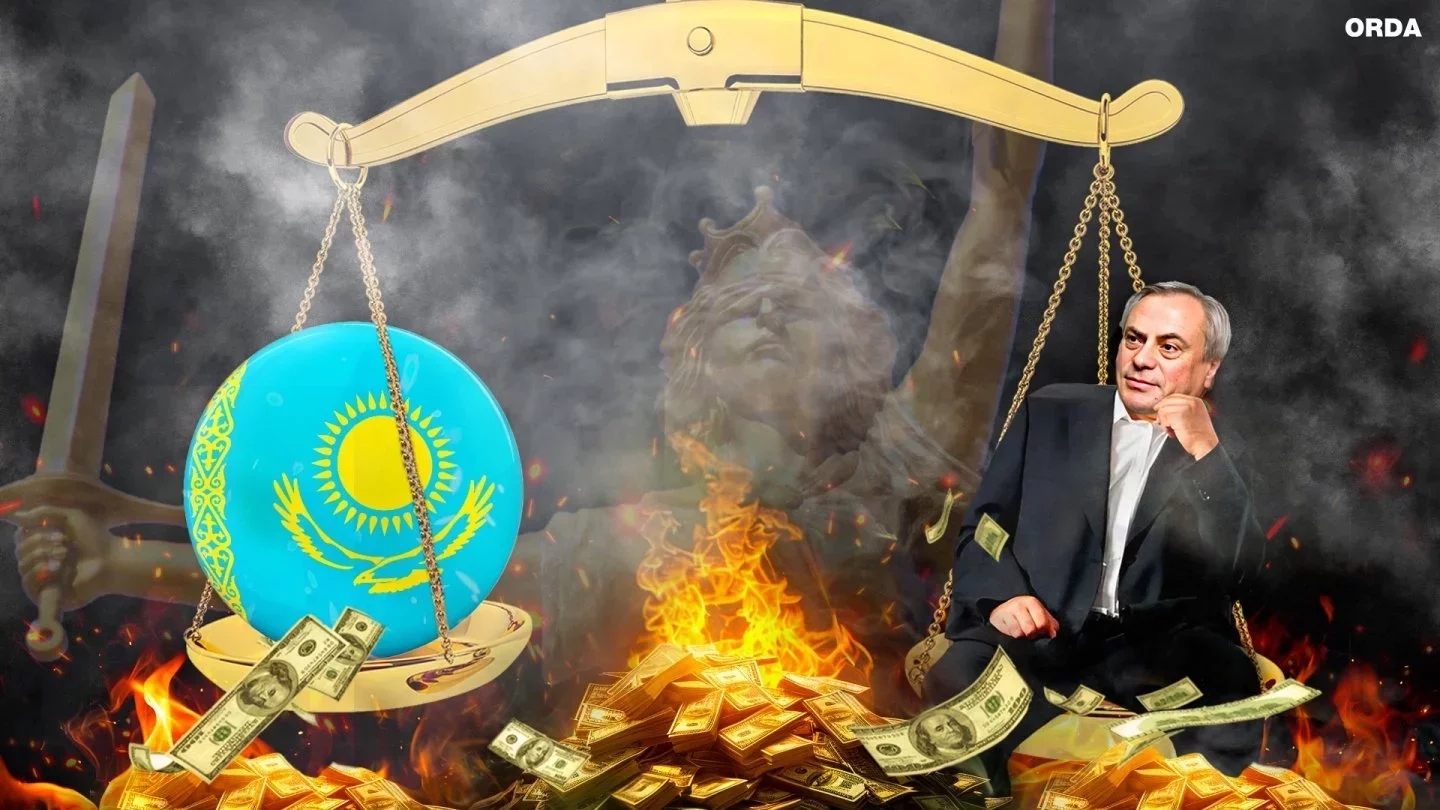
Kazakhstan has reached an agreement with Anatole and Gabriel Stati to end litigation that lasted almost 15 years over the illegal asset expropriation. The Ministry of Justice presents this as a victory for Kazakhstan, but the silver lining is the “arbitration war” ending. Orda.kz has looked into the matter.
Peace, Friendship, Investments?
On July 16, the Ministry of Justice officially confirmed that Kazakhstan and the Statis “had reached a mutually beneficial agreement ending all litigation and ceasing any ongoing claims in all jurisdictions.”
The resolution of this long-standing dispute demonstrates that Kazakhstan is fulfilling its international treaty obligations and thereby opening the door to increased investment and greater economic growth potential, said Daniel Chapman, Argentem Creek Partners's chief executive, representing the Statis
Justice Minister Azamat Yeskarayeva stated, "The agreement does not involve spending budget funds." KazTAG has also emphasized this: "The Republic of Kazakhstan will not spend a single tenge from the budget."
Meanwhile, there are no specifics about the money. Someone must pay for legal costs in international arbitrations, and it won't be Anatoli Stati. The deal, therefore, may be a compromise.
The 2000s
"The dark story dates back to the 2000s" is how political scientist Gaziz Abishev aptly characterizes the Stati case.
For many years, Kazakhstan had waged an arbitration war with Anatol Stati. The National Fund's money and the shares of the Kashagan field faced seizure at one point.
Anatol and Gabriel Stati invested money in Kazakhstan's oil and gas projects. At some point, they came under pressure from the Kazakhstani law enforcement system, and the oil companies were transferred to KazMunayGas. Stati filed cases in international courts. One after another, the courts made decisions that were unfavorable for Kazakhstan. The law firms hired by Kazakhstan, represented by the then Minister of Justice Marat Beketayev, continued to sit on plump budget contracts, dragging out the legal "push-pull." At the same time, the Stati case had a toxic effect on Kazakhstan's investment image, and the National Fund's funds became accustomed to being under international judicial arrests. Gaziz Abishev
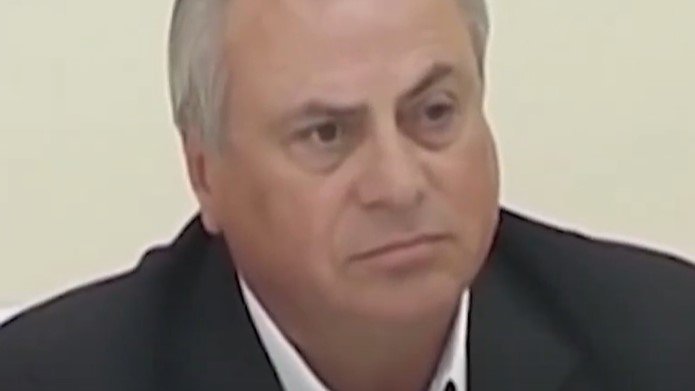
In 1999, Anatol Stati's Tristan Oil received a license to develop the Borankol, Tolkyn, and Tabyl fields in Kazakhstan and bought shares in Kazakhstan's oil companies, Tolkynneftegaz and Kazpolmunay. Stati invested, built a modern gas processing plant in the Mangystau region by the end of the 2000s, and made other plans.
In 2009, the company began to profit. Tristan Oil was later bombarded with inspections, huge fines, and accusations of tax evasion.
It would later surface that President Nazarbayev's instruction to Prime Minister Massimov to "review and make proposals" regarding Stati's assets in Kazakhstan served as the catalyst. In 2010, these assets were nationalized and transferred to KMG structures for trust management, and the 14-year litigation began.
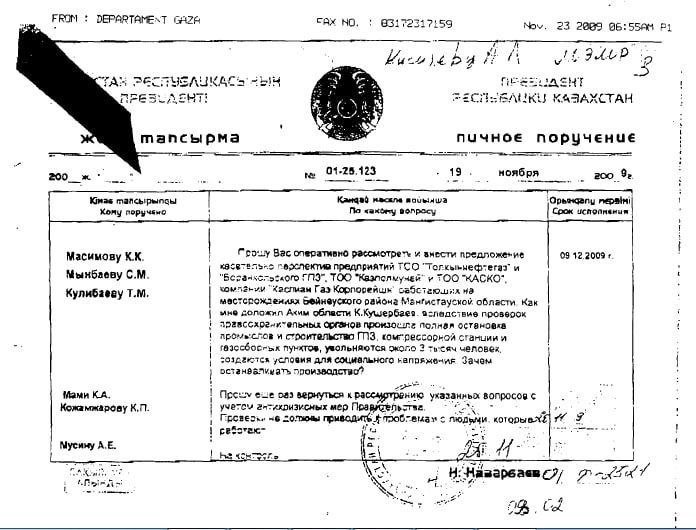
The Kazakh authorities accused Anatol Stati of violating the license terms, committing financial fraud, and siphoning off assets. Stati rightly responded with accusations of illegal expropriation.
The case was heard in several jurisdictions. The criminal investigation was conducted in Kazakhstan, Moldova, and Luxembourg. Arbitration and civil proceedings were conducted in other countries. In 2013, Stati won the Stockholm arbitration.
Stati's lawsuit resulted in the seizure of shares of the Samruk-Kazyna National Welfare Fund in KMG Kashagan BV. This decision was later revised, but KazMunayGas could not hold its IPO for quite some time, and Kazakhstan's 40 percent stake in ERG is still frozen.
In 2017, $22 billion of the National Welfare Fund's funds were seized. In November 2021, a court in Belgium finally lifted the hold on $530 million in National Welfare Fund assets, but the millions in share-profitability losses were never compensated. The then-Kazakh authorities considered this decision an achievement and branded the Statis as fraudsters deceiving international courts.
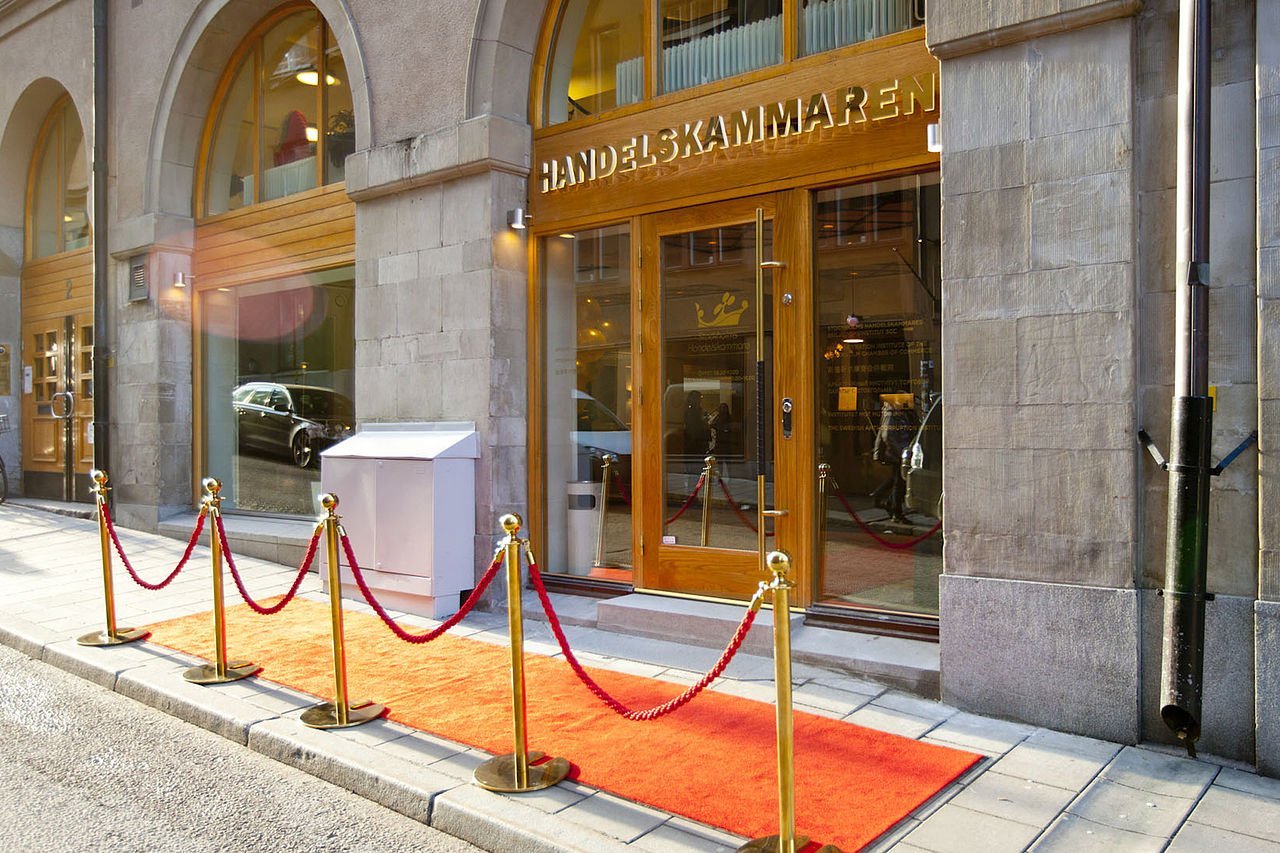
Kazakhstan bore the losses, including reputational ones. The country's investment attractiveness was questioned, money was arrested, and its image was attacked. Shortsightedness may have led the then-Kazakh authorities to believe that Stati would accept the situation.
Moldovan President Voronin had even written President Nazarbayev about Anatol Stati sponsoring the opposition with money earned in Kazakhstan.
The Stati case was an important precedent: Stati became the first foreign investor to win a lawsuit against Kazakhstan. After his success, claims from other foreign investors came down on Kazakhstan's elite. Judging by the “style,” the same lawyers handled them. Kazakhstan was up against a conglomerate of motivated investors and professional international lawyers.
All the aggrieved investors became active between 2010 and 2014 when the Stati case was going on. Why did they have to wait more than 15 years? It is also characteristic that now the aggrieved investors are not afraid of losing in arbitrations, and arbitration is an extremely expensive affair, and they boldly maximize the amount of their damages, noted oil expert Artur Shahnazaryan.
Stati's former enterprises, expropriated on Nazarbayev's instruction, stand idle. Kazakhstan has indeed lost a great deal for not.
Millions
Kazakhstan's legal costs in the Stati case are significant. Justice Minister Azamat Yeskarayev publicly denied rumors that the expenses had reached a billion dollars. The amount spent was "only" three times less.
The actions of the Ministry of Justice of the Republic of Kazakhstan have cost Kazakhstani taxpayers losses in the amount of more than 300 million dollars in the form of legal costs, the cost of legal consultants’ services, and other expenses, starting from December 2013, said Anatol Stati in 2021.
Since then, both parties' costs to the process have increased. The question arises as to who will compensate them, as the losing party usually does. If a settlement agreement is reached, then these figures are a cause for genuine curiosity.
Kazakhstan lost half a billion dollars to Anatol Stati. Could he have declined the 500 million he had already won in Stockholm?
Of course, we can hardly talk about some kind of humane generosity on the part of the Stati family. It is quite possible that they received some sort of compensation: from off-budget funds, from patriotic people in business, or from those who were forced to compensate with money for their past violations. One way or another, someone in this story made difficult financial decisions. Gaziz Abishev
"Old Kazakhstan"
Anatol Stati made it clear that he considered “Old Kazakhstan” to be at fault for all his losses. He named Karim Massimov and Kairat Boranbayev as the “chief architects.” The former coordinated the information and legal campaign, while the latter was connected with Kazakhstan’s international consultant on the Stati case, Bolashak Consulting. This connection was through a partnership with its founder Baibek, the former Almaty Akim.
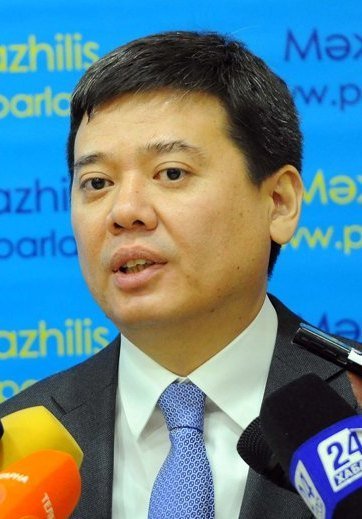
Another key figure in the case was former Justice Minister Marat Beketayev, Stati's main public opponent.
Stati accused him of seizing his assets. Together with Baibek, Beketayev controlled Bolashak Consulting. The consulting firm had long represented Kazakhstan's interests despite numerous suspicions of material interest. After Beketayev's arrest, foreign lawyers began defending the country in international proceedings, while the Justice Ministry's contractor, Bolashak Consulting, was no more.
Beketayev's strategy was to constantly accuse Statis of fraud and false statements. Courts in Sweden, Italy, and the United States consistently rejected the former justice minister's arguments. In June 2023, the Supreme Court of Sweden did not allow Kazakhstan and the National Bank to challenge the appellate court's decision.
According to it, Anatol and Gabriel Stati were entitled to compensation of $75 million. Kazakhstan spent millions of dollars on international arbitration but lost. The Stockholm arbitration ruled that the Stati "were subjected to unjustified prosecution" by Kazakhstan's government agencies, with this attack personally directed by Karim Massimov. According to the court's decision, the total costs, damages, and interest on the Stati claim exceeded half a billion dollars.
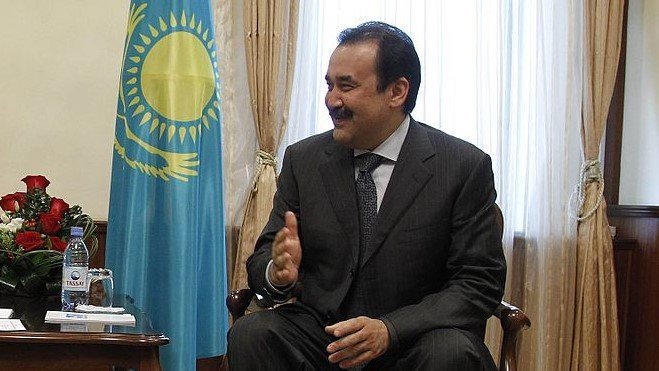
Before the January 2022 Events, Anatol and Gabriel Stati actively commented on the process through their lawyers, gave interviews, etc. Everything changed after Qantar.
"No comments" was the answer to any request from Orda.kz. This suggests the new leadership of Kazakhstan, shedding itself of Masimov, Beketayev, and other "Old Kazakhstan" members, took the matter into its own hands and began negotiations on a settlement agreement. Only Boranbayev remains relatively untouched but has fewer assets.
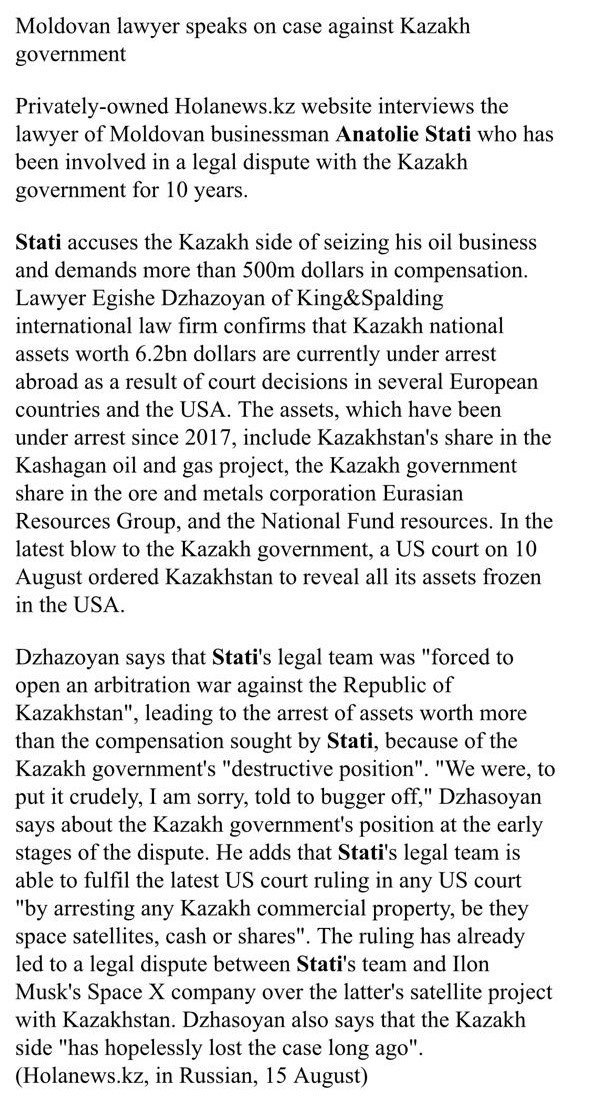
The final agreement between Kazakhstan and the Stati is an outcome of "New Kazakhstan" defeating the "Old." The tectonic shift in Kazakhstan's politics also affected arbitration proceedings with foreign investors.
However, the terms of the final agreement are unknown, and it is impossible to assess how beneficial they are for Kazakhstan.
Investment attractiveness is the cornerstone of Kazakhstan's macroeconomic plans. The Stati precedent will change its color in reports that consultants prepare for potential investors - from the black "they took away assets and continue to sue" to "they resolved the issue constructively, Gaziz Abishev believes.
The question remains whether Kazakhstan has paid too much to part ways peacefully with the Statis. Who will answer for and pay for Kazakhstan's financial and reputational losses brought about by Nazarbayev's 15-year-old decision?
Original Author: Nikita Drobny
DISCLAIMER: This is a translated piece. The text has been modified, the content is the same. Please refer to the original piece in Russian for accuracy.
Latest news
- President Toqayev Sends Nazarbayev Birthday Wishes
- Toqayev Appoints New Ambassadors in Series of Diplomatic Changes
- Unidentified Object Resembling Drone Found in Atyrau Region
- Trump and Zelenskyy Discuss Air Defense Needs
- Rapper Qurt: Wife Withdraws Statement in Court
- Head of Azerbaijani Cultural Autonomy in Moscow Region Reportedly Loses Russian Citizenship
- Defense Secretary Hegseth Paused Ukraine Weapons Shipment Despite Pentagon Assessment — NBC
- Prosecutor General's Office Confirms Detention of Kozhamzharov's Associate in Torture Case
- State to Scale Back Role in Competitive Sectors
- Uzbek Banker Kidnapped in Paris
- Former Financial Police Officials Reportedly Detained, Case Concerns Torture
- Progress MS-31 Launches from Baikonur Carrying Fuel, Water, and Scientific Cargo
- Two Men to Face Trial for Homicide of Missing Atyrau Woman, Body Not Found
- Russia Launched Massive Strike on Ukraine Following Trump–Putin Call
- Rapper Qurt Accused of Abuse by Wife
- Pavlodar Region: Rescuers Seek Lower Retirement Age Amid Strain of Risky Work
- Businessman Vagif Suleymanov Detained in Moscow
- Kashagan Field Reaches One Billion Barrels of Oil Extracted
- Lenin Street in Osh Renamed After 19th-Century Kyrgyz Leader
- New Uranium Plant Launched in Turkistan Region with French Partnership

